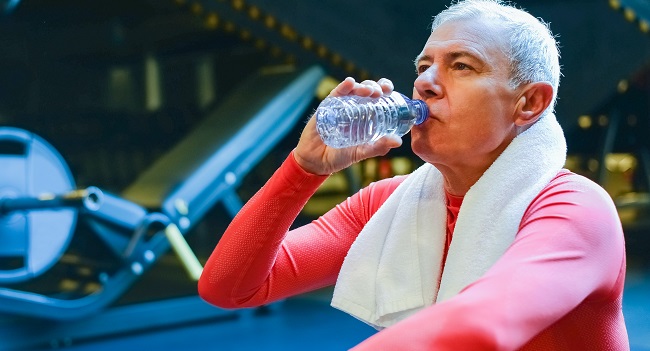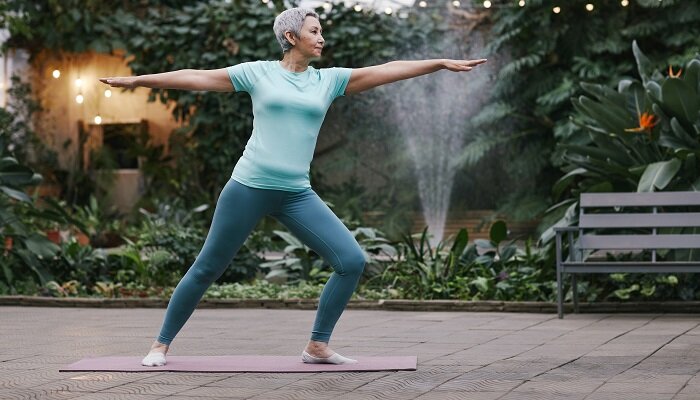As you reach a new stage of life, it is essential to prioritize taking care of yourself through healthy habits and positive lifestyle choices. As an elderly adult – or someone who knows and loves one – you may be wondering how you can best stay in control of your health when faced with the challenges that come along with growing older. To help make this easier, we’ve put together a senior self-care guide full of tips on staying healthy! Whether you’re worried about nutrition, activity levels, or managing physical symptoms such as joint pain or fatigue, our guide provides advice on ways to safely maintain your wellness and keep feeling great as you age. Read on for more information about staying healthy when you’re older!
Consult with Your Doctor/Go to Regular Checkups
For seniors, the process of proactively staying healthy begins with seeking regular medical consultation. Whether you need a general care physician in Perth, or a specialist, like a urologist in Warragul, it is important to make sure that your doctor is closely monitoring any changes to your health. Regular checkups can help identify and address any potential illnesses before they become serious issues. It also ensures that you are up-to-date on any routine tests and vaccinations. Furthermore, doctors can also provide helpful advice on coping mechanisms that are tailored to your individual needs, such as a diet plan or exercise regimen. Consulting with your doctor is one of the numerous ways you can stay healthy so be sure to incorporate it into your self-care guide!
Get Plenty of Sleep
Sleep plays an integral role in managing our health and well-being, especially as we age. That’s why it’s no surprise that making sure to get enough restful sleep is cornered at the top of any good senior self-care guide on staying healthy. After a long day, aim to get 7 to 8 hours of quality sleep every night – it’ll go a long way towards promoting better physical and mental functioning for seniors. Ask your doctor about any sleep aid or lifestyle changes that may help you if you have difficulty falling or staying asleep. With regular restorative sleep, you’ll be able to enjoy life with more vigor and vitality!
Exercise Regularly
Staying healthy can be daunting in our golden years, but exercising is an important tool that can make all the difference! Maintaining a regular workout schedule helps us keep our physical strength and balance, and promotes healthier aging. Studies have even demonstrated that regular exercise may slow or reduce age-related decline in both cognition and function. As seniors, it’s important to find an enjoyable form of exercise that suits our lifestyle and energy levels. Whether it’s walking around the block or taking up swimming or dancing, it’s always good to keep moving – regularly exercising not only keeps our bodies strong but also keeps our minds sharp and focused!
Eat Well
Eating a balanced diet of whole foods that are rich in vitamins, minerals, and other nutrients will help keep you feeling energetic, alert, and well able to take on whatever the day throws at you! A healthy diet should include lots of fresh fruits and vegetables, grains, lean proteins like fish and poultry, dairy products like low-fat yogurt and aged cheese, plus lots of water. If you’re having trouble eating right as a senior or if you’re dealing with physical limitations or adjusting to changing nutritional needs over time, it’s important to talk to your doctor or registered dietitian about finding easy meal ideas that meet your individual needs.
Stay Hydrated
Staying hydrated keeps your body fluids balanced, which helps your organs operate more efficiently. Those who are dehydrated often feel tired and sluggish, and a lack of hydration can lead to chronic abilities such as decreased mental and physical functioning. To ensure you’re staying properly hydrated, carry a reusable water bottle with you throughout the day and fill it up when possible. You should also keep an eye out for signs of dehydration in yourself; these could include a dry mouth, dark urine, or feeling dizzy or lightheaded. If you’re not able to drink enough due to difficulty swallowing or other issues, try adding superfoods such as cucumber or celery to your diet – they have an incredibly high water content!. In addition, you may consider exploring additional hydration treatments, like Myers IV in New Jersey, especially if you find it challenging to meet your daily fluid intake through conventional means. These treatments involve intravenous administration of a balanced solution containing essential nutrients and electrolytes, providing a quick and effective way to rehydrate and revitalize your system. So, it could be beneficial for maintaining optimal fluid levels in your body.

Practice Mindfulness
It involves paying attention to one’s thoughts, feelings, and bodily sensations in the present moment with acceptance and non-judgmental awareness. The practice of mindfulness can help to reduce stress, foster healthy relationships with ourselves and our environment, and cultivate greater physical and mental well-being. Start your mindfulness journey today by setting aside some time to sit quietly and observe your thoughts as they come and go without trying to change or control anything. You might want to focus on your breath or any bodily sensations; simply allow your awareness to settle and notice what comes up.
Crafting a successful, holistic senior self-care guide on staying healthy is an essential task all seniors should undertake. By consulting with your doctor, getting plenty of sleep, exercising regularly, eating well, staying hydrated, and practicing mindfulness, you are taking actionable steps to care for yourself and improve your overall health. Not only that but by doing so you’ll provide yourself with the peace of mind of knowing that you’re keeping fit and active – both mentally and physically. It’s never too late to start incorporating these tips into your daily routine – do it for yourself today!


















